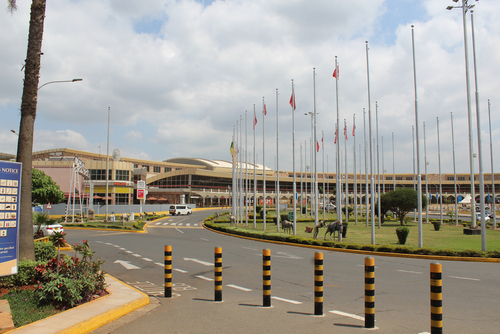Jet lag hacks: How different cultures combat 'time zone fatigue'

While there is no guaranteed cure, exposure to natural light, hydration, movement, and dietary adjustments are all effective ways to support recovery.
Have you ever landed in a new country, excited to explore, only to find yourself wide awake at 3:00 am, and struggling to stay awake during the day?
That, right there, is what is called jet lag, a frustrating side effect of long-distance travel that can steal a day or two of your trip if you are not well prepared.
More To Read
- Study highlights emotional strain among Kenyan nurses
- Governors, MCAs spent Sh16 billion on travel in one year, says CoB Margaret Nyakang’o
- State officials flock to Geneva, New York and Dubai despite travel limits - CoB
- Police probes spike in fatal crashes on Kenyan roads as over 50 dead in three days
- MPs award themselves Sh1.62 billion for travel, entertainment
- Lavish travel spending persists as MPs, State House splash Sh7.8 billion in six months
For most Kenyans, especially those travelling from Nairobi to places like London, Dubai, or New York, jet lag is not just about feeling tired. It is the fogginess, mood swings, hunger at odd hours, and sleep that simply will not come.
“Jet lag is due to a misalignment between the external environment and the internal clock in the brain that drives our daily performance, alertness, and the ability to sleep,” explains Dr Charles Czeisler, director of the Division of Sleep Medicine at Harvard Medical School.
Jet lag may not be dangerous, but it can rob travellers of precious days, especially when crossing continents for holidays, business trips, or long-awaited reunions. While many Western remedies often include melatonin supplements or sleep masks, many cultures have time-tested rituals, foods, and remedies that help reset the body naturally.
Here are seven global jet lag hacks inspired by traditional practices and local wisdom:
1. Japan: morning sun and onsen baths
Japanese travellers rely on the body's most powerful reset button: light.
They believe that exposing yourself to morning sunlight as soon as possible after landing helps regulate melatonin production and realign your internal clock. So, take that walk first after landing or first thing in the morning, around the hotel or the neighbourhood.
A hot soak in a mineral-rich onsen bath is also believed to reduce muscle fatigue and encourage deeper sleep. Some hotels provide the bathing salts, while others incorporate natural hot springs on their premises, offering travellers a relaxing way to ease jet lag and rejuvenate both body and mind.
They also believe pairing that with a light bento box meal, typically rice, fish, and pickled vegetables, can help your internal body sync up with local time, because the meal is light yet filling. So, do not grab those snacks first.
2. India: Ayurveda and ginger tea
In Ayurvedic tradition, long-distance travel aggravates "Vata" (the air element), which can throw off digestion and sleep.
Indian travellers often drink herbal teas infused with ginger, fennel, and Tulsi (holy basil) to calm the nervous system and reset digestion. They also believe that before you go to bed, warm sesame oil foot massages can be used to ground the body and help your body relax.
3. Italy: espresso timing and a leisurely passeggiata
In Italy, caffeine is used strategically, but not excessively. Italians believe that a mid-morning espresso can help fight grogginess, especially when taken in the morning, although they avoid coffee late in the day because they value sleeping time.
Another thing they believe taking a gentle passeggiata (evening stroll) through the streets or countryside is not only a cultural tradition, but it also helps align your body with local rhythms, especially after a long flight, you also get to stretch those muscles in your body while at the same time exploring.
4. Kenya: natural rhythms and hydration
In Kenya, many seasoned travellers turn to hydration and outdoor activity to recover from jet lag. Walking outdoors, whether along a path, garden, or roadside, encourages the body to readjust naturally. Stretch your legs at the same time.
Many Kenyan travellers like to explore around them, and you can never spot a Kenyan who does not like to enjoy their drink, whether it is sipping fresh mango or passionfruit juice on arrival, or in their rooms.
The fresh juices are rich in natural sugars and electrolytes and can help rehydrate after long flights. Meals like ugali, fish, nyama choma and Sukuma wiki provide comforting, grounding nourishment, especially when Kenyans abroad come back.
5. China: Acupressure, massages and broths
According to Traditional Chinese Medicine (TCM), the body’s energy, or qi, flows through specific pathways at different times throughout the day. Travelling across time zones can disrupt this natural rhythm.
To restore balance, TCM practitioners often use acupressure, applying gentle pressure to targeted points on the body. This technique is believed to stimulate circulation, relieve tension, and help reset the body’s internal clock after a long flight.
Once on the ground, many opt for congee or light bone broths, which are easy to digest and believed to support the body’s energy transition.
6. Scandinavia: Cold air and saunas
Northern Europeans, particularly in Russia, Sweden and Finland, often combine exposure to crisp, cold air with the rejuvenating ritual of a sauna session to fight fatigue and reset their body clocks.
If you have ever heard of a Russian bath (banya), the concept is similar, alternating between hot steam and cold plunges, ice baths or open-air cool-downs.
This hot-and-cold contrast is believed to boost circulation, reduce stress, and help the body relax into a new sleep cycle more easily after travel or strenuous exercise.
Upon arrival, you will find them taking a brisk outdoor walk, no matter the season then followed by a sauna to sweat out toxins and relax their muscles. This hot–cold contrast is believed to help the body reset its stress levels and improve sleep quality.
7. Middle East: Dates and prayer rhythm
In countries like the United Arab Emirates (UAE) and Saudi Arabia, where Muslims are dominant, they are natural timekeepers due to their daily prayer schedule.
Even when travelling across continents, their daily prayer schedule, anchored to the sun’s movements, whether at dawn or at dusk, helps realign the body and mind to local time, helps re-establish a sense of rhythm and time in a new place, offering a built-in remedy for jet lag.
Also, to them, dates are considered both symbolic and functional. Nutritionally, they are rich in potassium and natural sugars, and they offer a quick energy boost without overwhelming the digestive system.
8. Medical facts
According to the Cleveland Clinic, jet lag is common and generally short-term, but symptoms can vary, including insomnia, fatigue, headaches, digestive trouble, and mood swings. While there is no guaranteed cure, exposure to natural light, hydration, movement, and dietary adjustments are all effective ways to support recovery.
Modern supplements like melatonin supplements can help, especially when taken at the right time, but cultural traditions offer something deeper: These rituals of care and intention, rooted in centuries of body wisdom and science, also back them too.
So, the next time you land hours or days away from home, remember: a cup of ginger tea, a walk in the sun, hydration, a massage, or a warm bowl of soup may be just as effective as any pill.
Top Stories Today















































